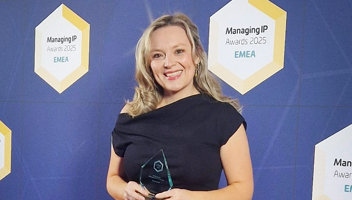Intellectual Property vs Corporate Social Responsibility
‘Don’t be evil’ was Google’s motto for a decade and a half, they dropped it just a few years ago.
It was originally adopted into the company’s corporate philosophy to set them aside from many of their competitors, which Google considered were exploiting those using their services.
While it has not been their motto for some time, the phrase remains central to Google and its parent Alphabet Inc.’s corporate code of conduct.
Perhaps we would hope that all the tech giants, whose services are central to how we live our lives, would not be evil. Sometimes things are not quite so clear cut.
Challenges, such as operating in countries in which the State fetters access to the Internet, have seen Google straining to always live up to the absolute standard it set itself. Its detractors used its aspirational motto to beat it with.
Over the last couple of decades most, if not all, large corporates have caught on that it is no longer enough just to enhance value for their shareholders.
It is vital they are seen to be good citizens within the markets and societies in which they trade, and act with corporate social responsibility (CSR).
But is there a tension between the objective of maximising shareholder dividends and exploiting rights and powers held by the company? Central to this is exploitation of portfolios of intellectual property rights (IPR).
Things have certainly changed in recent years. Before I issue any ‘cease and desist’ letters for a big brand client there is a heightened awareness that assertion of trade mark rights can be seen as bullying conduct.
This is especially an issue if the infringer is a small start-up with a hard luck story which they can share widely on social media.
Never before have large corporates been so wary of a backlash resulting from legitimate enforcement of their IPR.
But is doing so really contrary to their CSR?
What is CSR?
A useful working definition of CSR is that it is “a self-regulating business model that helps a company be socially accountable – to itself, its stakeholders, and the public. By practicing corporate social responsibility, also called corporate citizenship, companies can be conscious of the kind of impact they are having on all aspects of society including economic, social and environmental. To engage in CSR means that, in the normal course of business, a company is operating in ways that enhance society and the environment, instead of contributing negatively to them.”
The question arises as to whether a company is not enhancing society by securing and enforcing exclusive rights in ideas, words and logos. Some libertarians may argue that such conduct is always incompatible with the wider interests of society, but I disagree.
There must be a balance to be struck between incentivising innovation by granting IPR and allowing free access to ideas. A political decision is taken as to where that balance lies, by limiting patent protection to 20 years and allowing lengthy rights in copyright for 70 years beyond the death of the author.
So if we are comfortable that such rights can be obtained, are we equally comfortable that corporates can enforce them without acting contrary to CSR? Of course there can be no single answer.
We may well feel sympathetic to the cause of an SME which is compelled to enforce its only patent protecting their ‘crown jewels’ against a competitor trying to take their business.
Perhaps less so towards a non-practising entity (which used to be called a ‘patent troll’) seeking to exploit one of its arsenal of patents.
‘All Our Patent Are Belong To You’
Perhaps Elon Musk has the answer? ‘All Our Patent Are Belong To You’ was the curious title of a 2014 blog written by Musk in which he announced he was embracing an open source philosophy and declared that Tesla’s patent portfolio was being made available to the wider industry.
It was never claimed that this move was entirely altruistic. In his blog he acknowledged the benefit to Tesla in building a larger common, rapidly-evolving electric car technology platform. He also pointed out that, in practice, patent protection can be more ephemeral than real and that offering an open-source environment would enhance the company’s ability to attract the world’s most talented engineers.
On the face of it, this was a move which firmly positioned Tesla in the vanguard of great CSR. But is there more to it? Had Musk been able to convince his investors that they should altruistically give away such valuable assets for CSR reasons or did he have other motives?
As is often the case with Musk there is much more to the story. A few weeks before the move, Tesla’s long-term collaboration with Toyota had come to an end. It appeared that Japanese car giant was moving its focus to hydrogen fuel-cell cars.
Hydrogen powered vehicles would be in direct competition to Tesla’s electric vehicle technology; with a company the size of Toyota backing it Musk may have detected an existential threat. Some evidence of this competition can be seen with Toyota’s response, which was to match Tesla and ‘give away’ almost 6,000 of its own fuel cell patents.
Further criticism of Tesla’s patent give-away was generated by certain terms and conditions attached to use of the patented technology. Tesla undertook not to enforce its patents against any party only if they were acting in ‘good faith’.
The company declared that a party was considered to be acting in ‘good faith’ if they had not directly or indirectly commenced a patent action against them or asserted any IPR against Tesla. So it is clear that there were limits to Tesla’s altruism and, perhaps, clear commercial benefits will have arisen from the patent give-away.
Should you share the fruits of labours?
Another test of a company’s CSR credentials can come from the extent to which they allow their employees to share in the fruits of their own labours.
Many of our more informed clients have sophisticated policies in place to incentivise those responsible for innovating within their business, ensuring that appropriate rewards are given.
While this is certainly the right thing to do, there is clear self-interest in ensuring that employee inventions are captured for the good of the business.
The long running saga of Professor Shanks against Unilever PLC is an example of where things can go wrong with an employee inventor. It took Prof. Shanks 13 years of litigation to establish that an invention he developed was of ‘outstanding benefit’ to his employer.
Up until last year’s Supreme Court decision, a diabetes monitoring device which generated revenue of almost £25M was not considered to have been of outstanding benefit to the wider Unilever group.
Section 40 of the Patents Act 1977, which entitles employee inventors to compensation, had been interpreted pretty narrowly. It was suggested that Unilever was just too big to pay. The outstanding benefit requirement had been seen as being as posing too great a challenge.
It is hoped that companies would embrace the obvious practical benefits of encouraging innovation within the workplace, while also being socially responsible.
What is trade mark ‘bullying’?
There is a growing perception that, in certain circumstances, corporates should not enforce their trade marks.
In what way does protection of a company’s cherished brand conflict with its corporate social responsibilities? Bullying is a strong label to attach to it, but trade mark enforcement abuse can be a problem.
Of course, there will be clear cut examples of counterfeiting or deliberate copying of a logo or brand name when few will dispute the legitimacy of enforcing trade mark rights.
But what of the more marginal cases, perhaps where a start-up has made a play on a big brand name or adopted a logo which clearly alludes to a famous mark?
I consider it should not be seen as contrary to a company’s CSR to ensure its valuable brand is not diluted in such circumstances. However, the way in which these rights are exercised must be considered.
If a claim is made which is not justified or is overstated that may well be counter to CSR. The position is exacerbated if dealing with an infringer which has limited resources or may not have access to specialist IP advice.
There is a real risk that an overzealous trade mark litigator could flex their muscles and seek to impress their big brand client by ‘crushing’ the infringer. It is important that corporates make clear what approach they wish their attorneys to take when protecting their rights.
It may well be more cost-effective to give the infringer a reasonable time to rebrand, possibly even giving a financial incentive to do so, rather than incur costs on litigation.
There is a very good reason to do the right thing as the risk of naming and shaming big brands as trade mark bullies may do more harm to their reputation than the initial infringement.
More savvy brands such as Netflix and Jack Daniels have found innovative ways to address infringement of their trade marks using humour which communicates their concerns in a very CSR compliant manner.
Very importantly, this will be seen as positive by consumers.
Finding the balance between IPR and CSR
I am entirely satisfied that building a portfolio of IPR and enforcing it can be done in a manner which is socially responsible. But trying to be seen as ‘doing no evil’ with your IPR can be quite a challenge, as Elon Musk has discovered.
At a time when almost every Big Pharma is engaged in the race to develop Covid-19 treatments and vaccines it will be interesting to see the extent to which they will make these inventions freely available to countries with limited resources for healthcare.
It is important to ensure corporates have appropriate policies in place to reward and incentivise innovation within their business, and keep close control over the manner in which their IPR is exercised.
The risk of being named and shamed as acting in a manner which runs counter to your stated corporate values should be encouragement enough to find the correct balance between IP and CSR.
This article is based on an article published in Intellectual Property Magazine.
Written by
Related News, Insights & Events

Dawn Raids – recovery of evidence in Scotland
An overview of the Dawn Raid in Scotland with key implications of the Section 1 order known as Administration of Justice (Scotland) Act 1972.

Six in a row for Burness Paull at prestigious IP legal awards
11/04/2025
Burness Paull has won the award for Scotland IP Disputes Firm of the Year for the sixth year in a row at the Managing IP EMEA Awards 2025.

At the sharp end
Brand owners who hold cloned UK trade marks to take immediate steps to ensure their marks are used in the UK (or the EU) before 31st December 2025.





